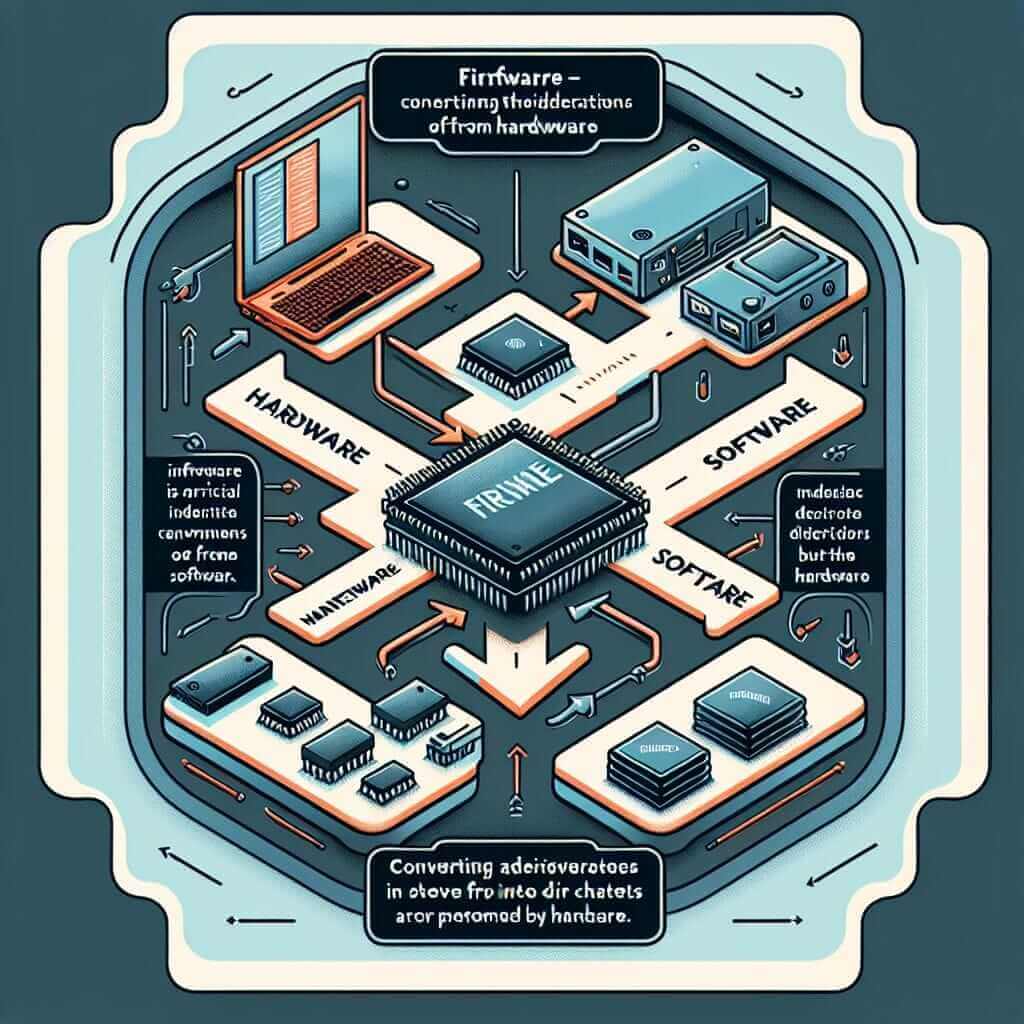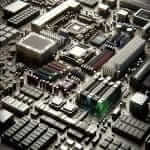In the realm of technology, “firmware” (/ˈfɜːmweər/) (noun) plays a crucial role, and understanding this term can be advantageous for your IELTS journey. This article delves into the intricacies of “firmware” and its relevance to the IELTS exam, equipping you with the knowledge and skills to confidently navigate technology-related topics.
Here are some synonyms and related terms to broaden your understanding:
- Software: /ˈsɒftweər/ (noun) – The programs and other operating information used by a computer.
- Hardware: /ˈhɑːrdweər/ (noun) – The tools, machinery, and other durable equipment used in technology.
- Embedded system: /ɪmˈbedɪd ˈsɪstəm/ (noun) – A computer system with a dedicated function within a larger mechanical or electrical system.
- Microcontroller: /ˌmaɪkroʊkənˈtroʊlər/ (noun) – A small computer designed to control a specific device or system.
Let’s illustrate with an example:
The firmware on my smartphone controls the touchscreen’s sensitivity and the camera’s image processing.
Understanding “Firmware”: A Deep Dive
Definition and Significance
Firmware refers to the permanent software embedded into a hardware device’s memory. It provides the low-level control instructions for the device’s hardware, enabling it to function correctly. Think of it as the bridge between hardware and software, ensuring smooth communication and operation.
Distinguishing Firmware from Software
While both firmware and software are sets of instructions, they differ significantly:
- Permanence: Firmware is permanently etched onto the hardware, while software can be easily installed, updated, or removed.
- Functionality: Firmware handles low-level hardware control, while software performs higher-level tasks like running applications.
 Firmware, Hardware, Software
Firmware, Hardware, Software
“Firmware” in the IELTS Exam: Areas of Application
The term “firmware” might appear in various sections of the IELTS exam, particularly in:
1. Listening: You might encounter “firmware” in lectures or discussions about technology, computing, or even manufacturing processes.
2. Reading: Passages discussing technological advancements, gadgets, or embedded systems might use the term “firmware.”
3. Writing Task 1: If presented with a diagram illustrating the architecture of a device, you might need to describe the “firmware” component.
4. Writing Task 2: Essay topics related to the Internet of Things (IoT), smart devices, or technological innovation could require you to discuss “firmware.”
Mastery through Application: IELTS Examples
Here’s how you can effectively use “firmware” in your IELTS responses:
Listening Example:
- You hear: “The latest update to the smartwatch’s firmware significantly improves battery life and adds new fitness tracking features.”
- Your understanding: The speaker is referring to an update to the permanent software embedded within the smartwatch, resulting in enhanced battery efficiency and additional functionalities.
Writing Task 1 Example:
- Task: Describe a diagram showing the components of a digital camera.
- Your response: “The image sensor captures light, which is then processed by the image processor. The firmware, stored on the ROM chip, controls the camera’s various functions, such as focusing and exposure.”
Writing Task 2 Example:
- Task: Discuss the potential benefits and drawbacks of smart home devices.
- Your response: “While smart home devices offer convenience and efficiency, concerns about data privacy arise. Firmware vulnerabilities in these devices could be exploited by hackers, potentially compromising personal information.”
Expanding Your Lexicon: Idioms and Collocations
While “firmware” itself isn’t commonly used in idioms, understanding related phrases can enhance your language proficiency:
- “Brick a device”: To render a device unusable due to corrupted or faulty firmware. (e.g., “I accidentally bricked my phone while trying to install a custom ROM.”)
- “Flash the firmware”: To install or update the firmware on a device. (e.g., “You can flash the latest firmware using the manufacturer’s software.”)
Conclusion
Mastering technology-related vocabulary like “firmware” is essential for achieving a high band score in the IELTS exam. By understanding its meaning, usage, and application in different contexts, you’ll be well-equipped to tackle any technology-related questions or tasks confidently.
Continue expanding your vocabulary, practice incorporating these terms into your speaking and writing, and approach your IELTS exam with the knowledge and confidence to succeed.


